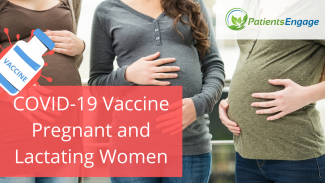
The Federation of Obstetric & Gynecological Societies of India released a position statement on COVID-19 vaccination for women who are pregnant or currently breastfeeding. Here are the key highlights and answers to some common questions.
There has been a lot of conversation in recent months regarding vaccination of women primarily the menstruating, pregnant and lactating women against Covid-19. News channels, insufficient research data and social media have further added to the discussion leading to confusion and misinformation. Several International bodies such as FIGO, RCOG, SOGC and ACOG have issued guidelines on vaccination and follow-up of any or all adverse events.
Current Recommendations in India:
“FOGSI acknowledges that there is limited data available on the use of COVID vaccines in pregnancy, especially of the vaccines that are available in India. Data from basic science and animal studies have not shown any teratogenic or adverse fetal or neonatal effects of the vaccine.
As matters stand in our country, every individual needs protection from the surging COVID-19 infections. We are in the midst of the second wave. There is a need to prevent further waves and the vaccine is the best and long term solution to this. This protection should extend to pregnant and lactating women. The very real benefits of vaccinating pregnant and lactating women seem to far outweigh any theoretical and remote risks of vaccination. Lactating (breast feeding) women should also be considered as COVID vaccine candidates as there are no known adverse effects on the neonate who is breastfeeding. In fact, there is a passage of protective antibodies to the child, which may be a beneficial effect. The method of administering and monitoring the vaccine and the schedule of vaccination should be the same for pregnant and lactating women as for the general population.”
Some Common Questions Addressed
1. Which day of the menstrual cycle should vaccine be taken?
There is no physiological, endocrine or immunological basis for such a consideration. Women should receive the vaccine on any day of the menstrual cycle, even during menstruation.
2. Is there any restriction for women who want to conceive or are undergoing fertility treatments including assisted reproduction?
There is no evidence that vaccine administration affects fertility or miscarriage rates. Women should take the vaccine before pregnancy is confirmed or as and when they have an opportunity to do so. There is no basis for deferring pregnancy or treatments for taking the vaccine.
3. Should women take the Pregnancy test before getting the vaccine?
This is unnecessary and has no basis. It is not recommended to test for pregnancy before vaccination.
4. Is the vaccine harmful to a pregnant woman in early pregnancy?
The vaccine does not have any known teratogenic effects (teratogens are substances that may cause birth defects via a toxic effect on an embryo or fetus) as per available evidences. Women who are vaccinated in this manner should not be advised to terminate the pregnancy. They should be counseled that the risk of congenital anomalies does not rise above the baseline risk. However, at the present time, it would be prudent to defer vaccination in the first trimester as there is no substantial available data to establish absence of teratogenicity.
5. Should vaccines be given to a pregnant woman already infected in the past?
A pregnant woman faces greater risks in pregnancy if she is infected with COVID-19 as compared to a pregnant woman who is not infected or a non-pregnant woman who is infected. Therefore, vaccination is advisable even if there has been a past infection. As for the general population, vaccination should be deferred for 12 weeks from the infection or 4 to 8 weeks from recovery. 10
6. Can the vaccine be given to a pregnant woman with co-morbidities (pre-existing or developed in pregnancy)?
These co-morbidities do not represent contraindications to the COVID vaccine and in fact, these women will be served maximally from the protective effect. Women with such conditions should consult with their obstetrician or care provider and seek their advice on this.
7. Can breastfeeding woman take the vaccine?
There is no evidence of harm from any harm if a vaccine is administered to a breastfeeding woman. In fact, there is possible benefit from the passage of antibodies to the neonate. Breastfeeding women should be vaccinated as per the usual method and schedule of the general population.
8. Are there any contraindications to vaccination or any circumstance when pregnant or lactating women should not vaccinate?
As for the general population, pregnant and lactating women should avoid vaccination in the following conditions:
- Anaphylactic or allergic reaction to a previous dose of COVID-19 vaccine
- Immediate or delayed-onset anaphylaxis or allergic reaction to vaccines or injectable therapies, pharmaceutical products, food-items etc.
- Temporarily in the following conditions:
- Diagnosed COVID-19 infection – defer for 12 weeks from infection or 4 to 8 weeks from recovery
- Active symptoms of COVID-19 infection.
- COVID-19 infection treated with anti-COVID-19 monoclonal antibodies or convalescent plasma
- Acutely unwell and hospitalized (with or without intensive care) patients due to any illness.
Reference
Adapted from The Federation of Obstetric & Gynecological Societies of India, FOGSI Position Statement Covid Vaccination For Pregnant & Breastfeeding Women: https://www.fogsi.org/wp-content/uploads/covid19/fogsi-statement-on-covid-vaccination-in-pregnancy-and-bf.pdf






